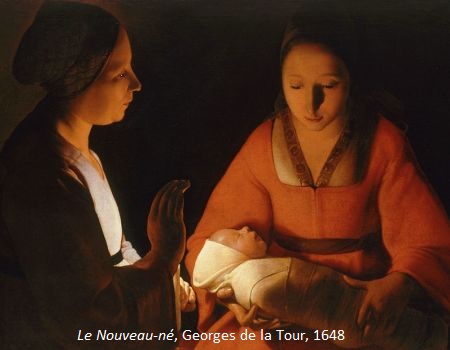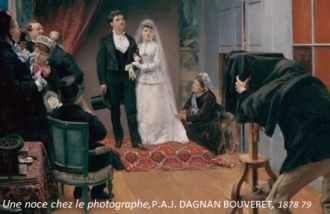How is laïcité linked to women’s freedom?
Don’t get fooled, laïcité was not invented to free women. Yet, this principle did help women emancipate themselves for sure, by achieving freedom and equality. How’s that? Let us explain!
For centuries, women have been perceived as mothers, compliant wives, submissive to their fathers and spouses. Inequality between men and women was an accepted fact in French society. Catholic morality was the custom.

Is the Bible misogynistic? Believers will say it isn’t, others will single this extract out: “To the women He said: I will make your pains in childbearing very severe; with painful labor you will give birth to children. Your desire will be for your husband, and he will rule over you.” Readings diverge, but it is certain that religious strains have weighed heavily upon women’s role and their rights in French society for long.
The 1905 law on laïcité was no revolution for women, but it provided them with a promise for equality: Separation of Church and State makes laws voted in parliament paramount to religious ones. Simply put, law and justice take precedence, not laws ordained by religion. Freedom for women was thus slowly underway.

Women’s emancipation is marked by a progressive evolution of laws. E.g.: 1938, the law claiming that a “husband must protect his wife and be obeyed by” was abolished. The father is still the head of the family, but in 1970 it’s the shared parental authority that is common law.
Thanks to a secularization of customs and an independent justice system that amends law, which are deprived of all religious morality, women have advanced on the path towards equality. They’ve gained numerous rights over the course of time: financial independence, control of their fertility, uncontested divorce, voluntary termination of pregnancy (known as “IVG”) …
Equality is an ongoing battle. Yet, in a society marked by laïcité, the road is simpler and more direct for women.
To go further
Laïcité through Célia’s eyes :
« Laïcité protects me as a believer, it protects me as a woman, for it bestows rights upon myself that I didn’t have before. It frees me from a number of constraints that were obstacles to my professional success.”
Célia has a feminist vision of laïcité.
In Arabic:
“العلمانية تحميني كمؤمنة، وتحميني كامرأة، لأنها تضمن لي حقوقاً لم أحصل عليها من قبل. إنها تحررني من بعض القيود التي كانت عقبة أمام نجاحي المهني”.
سيليا، رؤية نسوية للعلمانية.

